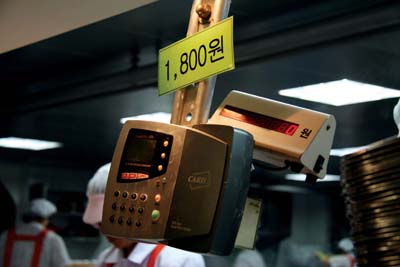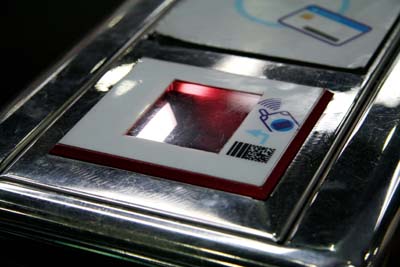

When asked why is it so easy, another student said, "People make a group or take OCU classes with friends and corporate with each other when taking the test. They corporate among themselves by separating the parts of their study and taking the test together in the PC room. In addition, there is no need to listen to the whole lecture, because OCU assumes that the student attended the class after 20 minutes of the lecture had past. The reality is that people just turn the lecture on, and then do other things."
When asked whether you feel you learned a lot from the OCU class, a student said, "No." However, we know this was not such surprising news. It was also not such surprising news to the school either. The Office of Academic Administration said, "Yes. We know about such problems. However, OCU is like a program for exchanging credits with domestic sisterhood universities. For example, when we enroll a student in a Sisterhood University, we do not become concern about whether that university has flaws in its program, such as students cheating on the tests, right? We are also not concerned about whether the Sisterhood University's credit system is working or not; we just accept the student's credits from the university. OCU is the same thing. Students cheat on OCU tests, but we cannot do about it because we sent our students to OCU, and they run how things will work." When asking what CAU does about this problem, he said "We are doing our small part by not letting the OCU grow large. We have been reducing the number of classes from 180 to 150 classes, and there are about 30 to 35 students in each OCU lecture. In addition, we are trying to keep the number of OCU students to about 5000 if possible. The reason why we agree to have OCU lectures in CAU was to make students life ubiquitous, to give students some conveniences in studying. However, the students' lecture satisfactory was low and the problems about how OCU classes run were rising. There are bad points as well as good points."
The most common phenomenon about a university's ubiquitous life will be the usage of the smart card. Did you know that students could pay for their meals by student card in the student cafeteria? The electronic terminal is placed above the box where you put your meal ticket that you bought with paper money in front of the cafeteria entrances. We normally complain about the long lines and waiting to put the ticket in the box, but it is not necessary to do this. However, students are not using this device. Why? A student majoring in Home Economics Education said, "I did not know this smart card terminal worked. Nobody around me knew how to use them and neither did I."
When asking a cafeteria cook how many people use their student card as a way to pay for their meal, she said, "About 20 to 40 people use this devise each day."
Why is it not so popular? The Office of University Planning said, "First of all, let me make it clear that the money used on the device is not school money. It is a smart card test run for Wooribank. They are the sponsors. Now, if the school forces the student to use the smart card the school has to reorganize many related departments and policies to make it work. The school may do that if the amount of money used by smart card is large. However, a school cafeteria meal is only about 2000 won. It is relatively small money, and it is a challenge to require students to use the smart card. There is no need to actively revitalize school flows for this device."

Notebook computers are also an essential item for a ubiquitous life, but it is not so easy to use notebook computers in CAU. A student in the College of Natural Sciences said, "It is not so easy to access the Internet in CAU, but I think a few more Internet antenna in and around the school will make it easier to access."
When asking a student if people using notebook computers in the library is irritate to the nerves, he said, "Yes. A few people get into fights over that. The sound of typing is pretty irritating. Also, people usually get into fights when connecting their notebook computer by inserting a plug into a wall outlet; then there are the notebooks dropping to the floor because a student passing by touches the connection line."
The Office of Academic Administration said, "We have Internet antennas around the school. Most of them are set up where people are most likely to go, for example, the school cafeteria. We have a telephone company check the lines regularly, but they cannot all be perfect. Some places are not easy to access. However, it would be a waste of money to place such antennas where there are not many students."
What about other universities? How is their ubiquitous life? Far East University set up an electronic teacher's desk in 74 lecture rooms. When professors write on the teacher's desk, the note automatically appears on the board for students to see. However, there were complaints. A student in the Far East University said, "Not all the notes that professors write appear on the board, it often misses a few letters and professors get a bit annoyed by that."
Sookmyung Women's University started a mobile student card service. A device that identifies the student is placed on the back of their cellular phone, so students can use this as a replacement for their student card. In asking whether you use mobile service to Sookmyung Women's university student, she said, "No, I never used it and rarely have seen a student using it. I guess it is because it is not well advertised and only KTF users are able to use the service. Also, I find no trouble in using just the ordinary student card."
We think the affects of a ubiquitous life are all around us, and makes our life better. However, the technology is staying more formal rather then effective. Are we really living in a ubiquitous life?

